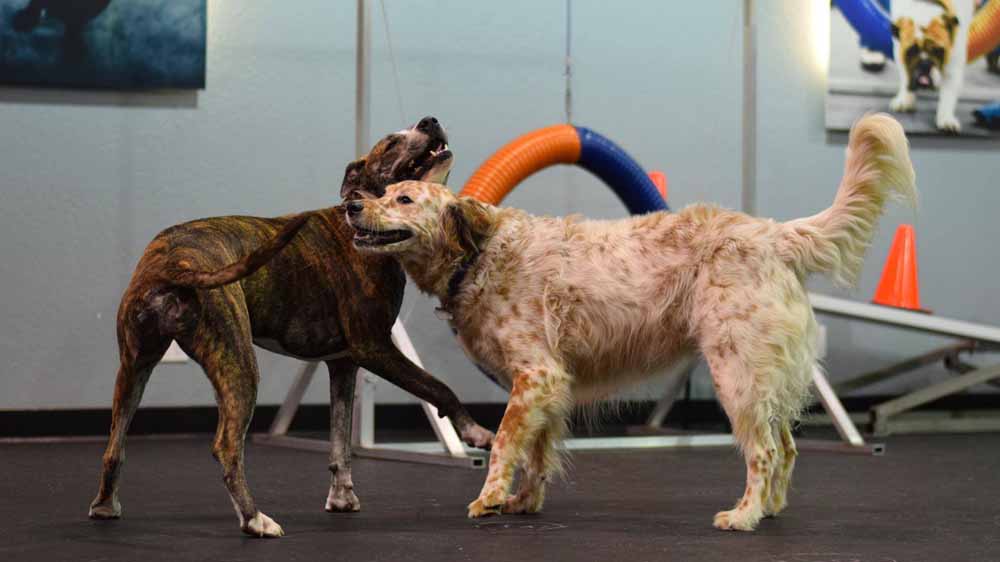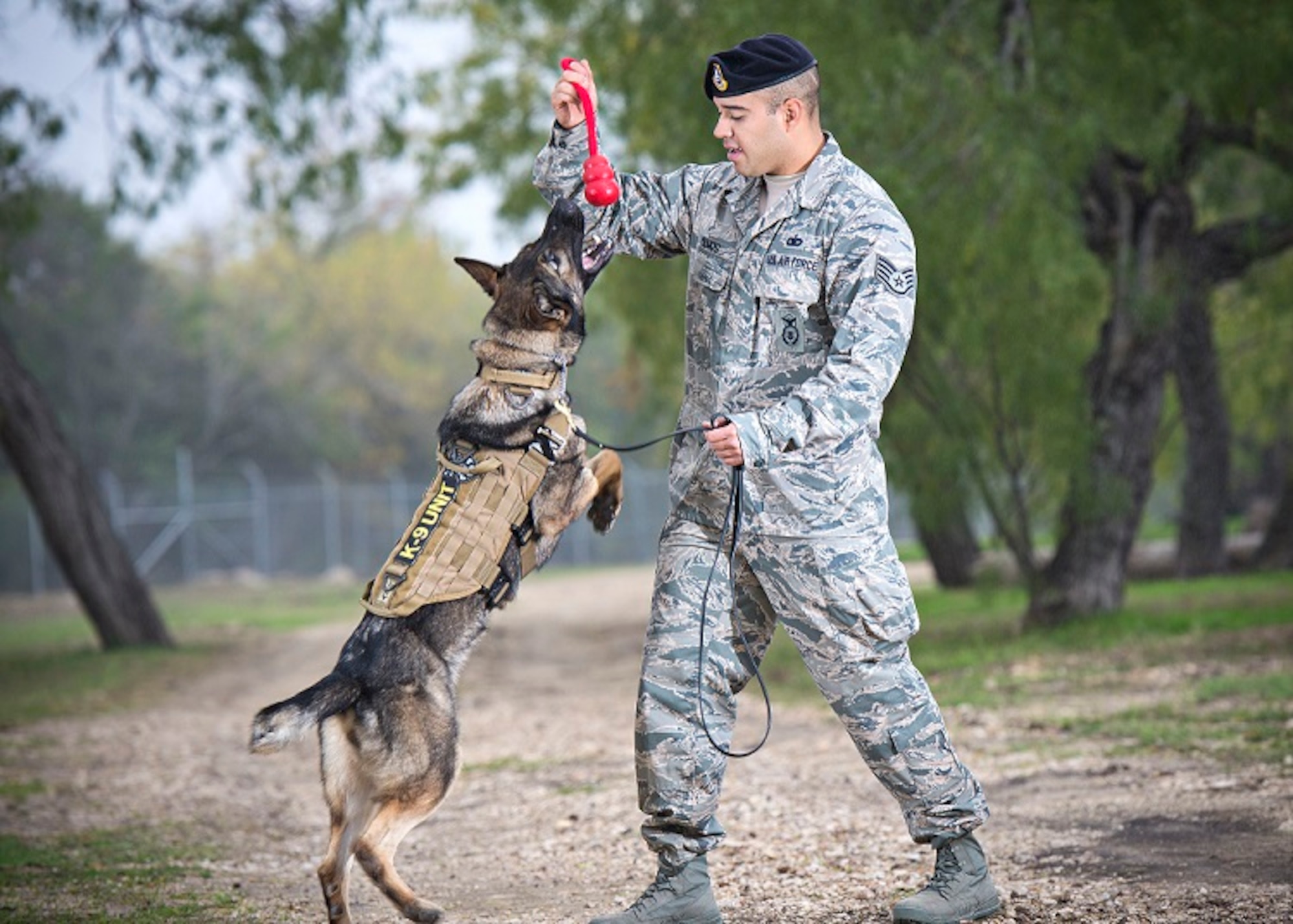Picking the Right Dog Trainer for Your Pet's Specific Needs
Picking the Right Dog Trainer for Your Pet's Specific Needs
Blog Article
Check Out the Different Kinds Of Pet Dog Training Available for Your Furry Close Friend
Comprehending the various types of dog training is important for enhancing your canine friend's habits and promoting a stronger bond. From standard obedience to sophisticated methods such as agility and aroma work, each training approach uses one-of-a-kind benefits customized to both the canine's and owner's requirements.
Standard Obedience Training
Fundamental obedience training lays the foundation for a well-behaved pet dog, setting the phase for a harmonious relationship in between family pet and proprietor. This vital training focuses on mentor pet dogs fundamental commands such as rest, stay, come, down, and heel. These commands not only enhance communication however also promote safety and security in various environments.
The training process generally starts with favorable reinforcement methods, where incentives such as deals with or appreciation are provided when the canine successfully adheres to a command. This technique motivates a favorable discovering atmosphere, inevitably promoting trust between the owner and the canine. Uniformity is key; regular technique makes certain that the canine keeps commands in time.
Moreover, basic obedience training helps to attend to usual behavioral issues, such as jumping, barking, or drawing on the leash. By establishing clear boundaries and expectations, proprietors can lower undesirable actions and boost their canine's socialization skills.

Advanced Training Strategies
Advanced training strategies build upon the foundational skills established in basic obedience training, supplying a path to boost a dog's capabilities and responsiveness. These methods typically involve specialized skills and commands, enabling pet dogs to carry out tasks that require greater levels of concentration and knowledge.
One prominent method is agility training, where canines browse obstacle training courses, enhancing their physical control and psychological sharpness. This not just supplies workout yet also reinforces the bond in between pet dog and trainer with teamwork and communication.
One more advanced technique is scent work, which use a pet's natural olfactory capacities. This training encourages dogs to identify and locate particular scents, enhancing their emphasis and analytic skills. Such activities can be specifically valuable for types predisposed to monitoring.
Service pet dog training is another critical area, where dogs discover to assist people with impairments. This training requires a high level of obedience and specialized abilities tailored to the details demands of their handlers.
Therapy Methods
Efficient pet dog training expands past teaching abilities and commands; it also includes therapy approaches that attend to unwanted habits. These methods are vital for dealing with issues such as hostility, too much barking, and splitting up stress and anxiety, making certain an have a peek at this website unified connection between pets and their owners.
One commonly identified technique declares support, which involves gratifying preferred habits to urge their reappearance. This approach works in reinforcing excellent routines while decreasing fear or anxiety in the canine. Alternatively, aversive strategies, such as penalty or negative support, are normally discouraged by experts as a result of their potential to create worry and stress and anxiety, leading to more behavioral troubles.
An additional important technique is desensitization, which progressively exposes canines to the stimuli that prompt undesirable actions in a regulated fashion. This procedure aids canines discover to continue to be tranquil and composed in situations that would usually cause anxiety or hostility.
Counter-conditioning is often made use of combined with desensitization, where the pet dog learns to link positive experiences with previously adverse stimuli. Both methods call for patience and uniformity, making them efficient devices for attaining long-lasting behavior change. By utilizing these therapy methods, pet dog owners can foster a satisfied and well-adjusted canine friend.
Specialized Training Programs
In the realm of pet dog training, specialized training programs deal with particular needs and goals, offering tailored approaches that improve a pet's capacities and address special obstacles. These programs are developed for numerous functions, including solution dog training, therapy dog prep work, and also competitive sports training.
Service canine training concentrates on gearing up dogs with the abilities essential to assist people with impairments, such as assisting visually impaired proprietors or notifying to clinical emergencies. This training is extensive and commonly requires a mix of obedience, socialization, and particular task-oriented skills.
Treatment pet programs aim to prepare canines for emotional assistance roles in healthcare facilities, colleges, and assisted living home. These dogs must exhibit calmness, sociability, and a gentle demeanor, guaranteeing they can give convenience to those in distress.
Additionally, affordable sports training, such as dexterity or obedience tests, highlights fitness, precision, and teamwork between the dog and handler. These programs demand a high level of dedication and technique, fostering a strong bond while developing the pet's athletic capabilities.
Enjoyable and Interactive Training Tasks
Just how can canine training be both satisfying and productive? The answer hinges on integrating enjoyable and interactive training tasks that promote your pet's visit the website mind while strengthening vital skills. get redirected here Involving your pet through play not just enhances the bond in between you and your fuzzy good friend yet additionally boosts their discovering experience.
One effective way to achieve this is via dexterity training, where pet dogs browse obstacle training courses that test their psychological and physical capacities. This activity urges analytical and enhances coordination, making it a superb option for energetic types. Another choice is using challenge playthings that give treats, which can keep your pet mentally involved and inspired to find out.
In addition, incorporating video games like fetch or hide-and-seek can make training sessions much more dynamic. These activities encourage the canine to respond to commands in a fun context, promoting obedience while permitting social communication.

Final Thought
In conclusion, different types of dog training are crucial for improving canine behavior and cultivating a solid human-animal bond. Exploring these varied training alternatives equips pet proprietors with the devices required to grow well-rounded, happy, and obedient buddies.
Comprehending the different kinds of dog training is important for improving your canine companion's behavior and cultivating a stronger bond. From basic obedience to sophisticated techniques such as agility and aroma work, each training approach provides special benefits customized to both the pet dog's and owner's requirements.Fundamental obedience training lays the foundation for a well-behaved pet, establishing the stage for an unified relationship between animal and proprietor.The training procedure typically begins with positive support methods, where incentives such as deals with or appreciation are supplied when the dog effectively follows a command.In conclusion, different kinds of pet training are important for enhancing canine habits and fostering a solid human-animal bond.
Report this page